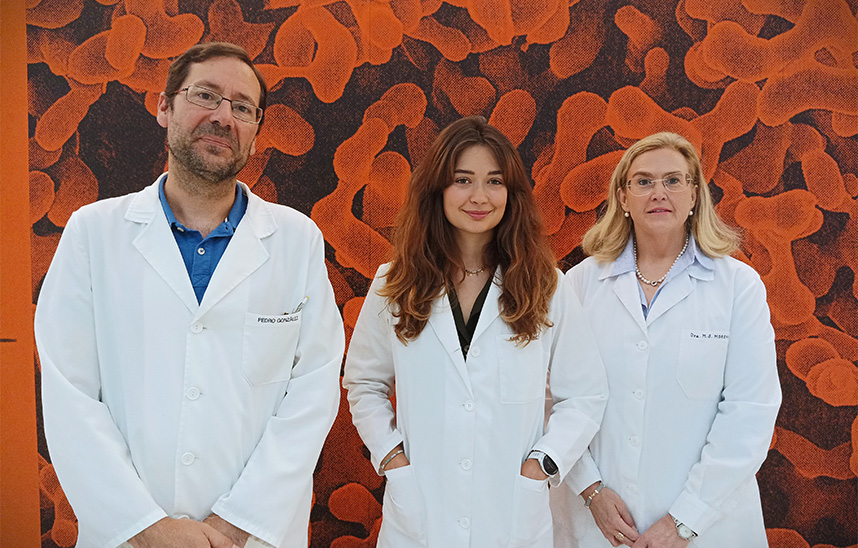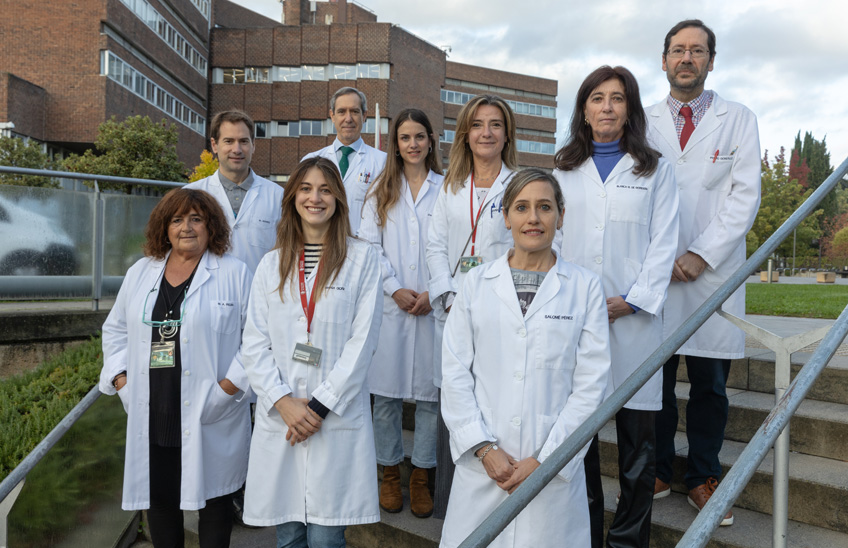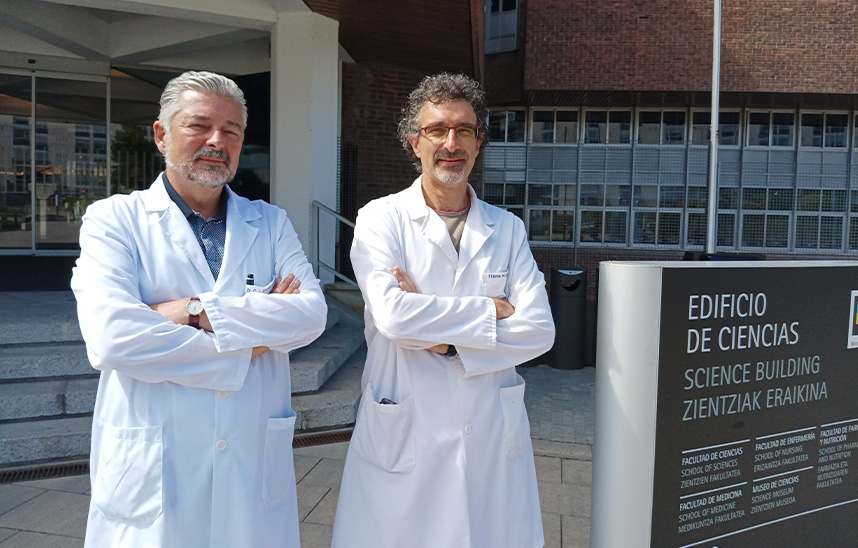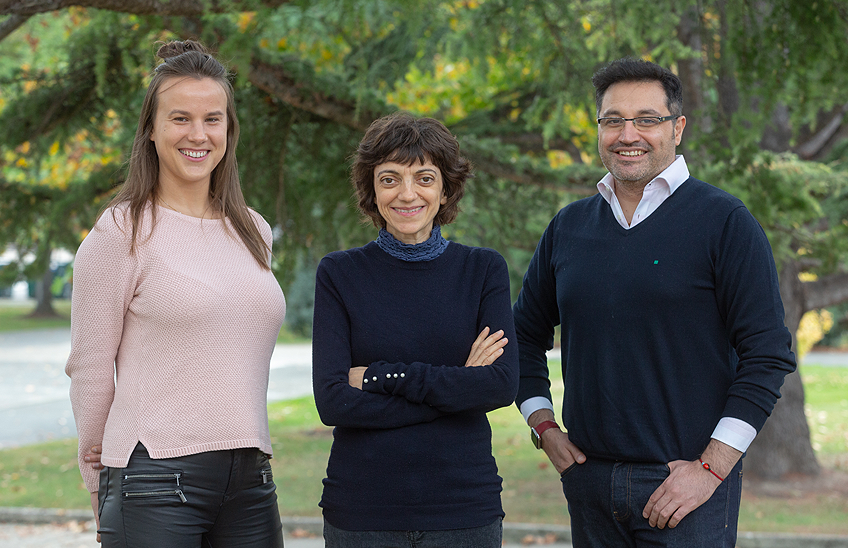University scientists investigate whether current societal habits alter circadian rhythms and diabetes risk
The body has a "master clock", regulated by light and dark cycles, whose alteration could be linked to diseases such as diabetes.

FotoCedida/Dr. Pedro González Muniesa and Dr. María Jesús Moreno Aliaga, principal investigators of project "KRONODIABET", and Ana Velasco (in the center), PhD student beneficiary of the FPU program.
Can our circadian system be affected by the new routines and habits imposed by today's modern society and thus increase the risk of developing subject 2 diabetes? This is the starting hypothesis of the "KRONODIABET" study launched by the research center in Nutrition of the University as a project of the doctoral thesis of Ana Velasco Andonegui, beneficiary of the FPU program training of the University faculty of the Government of Spain, and whose principal investigators are Dr. Pedro González Muniesa and Dr. María Jesús Moreno Aliaga. This study is co-funded both by the AgroalnextComplementary Agri-Food Plan , inthe framework the Recovery, Transformation and Resilience Plan, and by the MCIN (PRTR-C17.I1), both funded by the European Union - NextGenerationEU, as well as by the research center Biomedica en network de Fisiopatología de la Obesidad y Nutrición (CIBEROBN) of which those responsible for the study are members.
The human body is governed by a complex circadian system that synchronizes internal biological processes with signals from the outside world. This system "sets the time" of the internal clocks of virtually every cell in our body, allowing the body to anticipate and be prepared for predictable changes, such as the availability of light or the arrival of night, thus adapting its physiological functions.
To coordinate circadian rhythms, our body has a master clock, located in a small region of the hypothalamus, the suprachiasmatic nucleus. This, regulated mainly by light and dark cycles, is able to synchronize the clocks of the rest of our peripheral organs and tissues, such as the liver, skeletal muscle, adipose tissue, pancreas or even the microbiota. However, these also have their own circadian clocks, are not directly regulated by light and are very sensitive to other external signals, such as physical activity or feeding schedules.
But what happens when we do not maintain lifestyle schedules of agreement to our chronobiology? The new demands of today's modern society mean that more and more people are forced to adopt inadequate schedules, exposing themselves to artificial light or to adopt eating or physical exercise schedules when our circadian system is already prepared for darkness, fasting or rest. In final, to live in a state of "chronodisruption".
In response to this reality, this project aims to investigate changes in glucose levels throughout the day and their relationship with schedules (food, physical activity, light and sleep), feeding behavior and circadian rhythms of the microbiota, metabolome, gene expression and hormones.
Volunteers between 30 and 70 years old
To achieve the objectives of the "KRONODIABET" study, those responsible for research are looking for women and men between 30 and 70 years of age, non-smokers, who meet one of the following conditions: 1. People with prediabetes or diabetes subject 2 (high glucose levels) without pharmacological treatment and overweight/obese; 2. Healthy people without alterations in glycemic control and with normal weight.
The study is observational, so participants will not have to change their habits. During their participation, they will wear a glucose monitoring sensor (similar to an arm patch) and a circadian monitoring device (similar to a watch). The study has a total duration of 15 days and you will need to visit research center in Nutrition on 4 occasions. During the 12-hour main study visit , meals will be provided, body composition analyses will be performed, saliva and blood samples will be taken, and questionnaires will be completed. In addition, the volunteers will have a conference room to use the computer, read, telework,... and will be able to leave on three occasions.
Those interested in participating can send an e-mail to voluntariosnut@unav.es (indicating KRONODIABET in the subject line).



